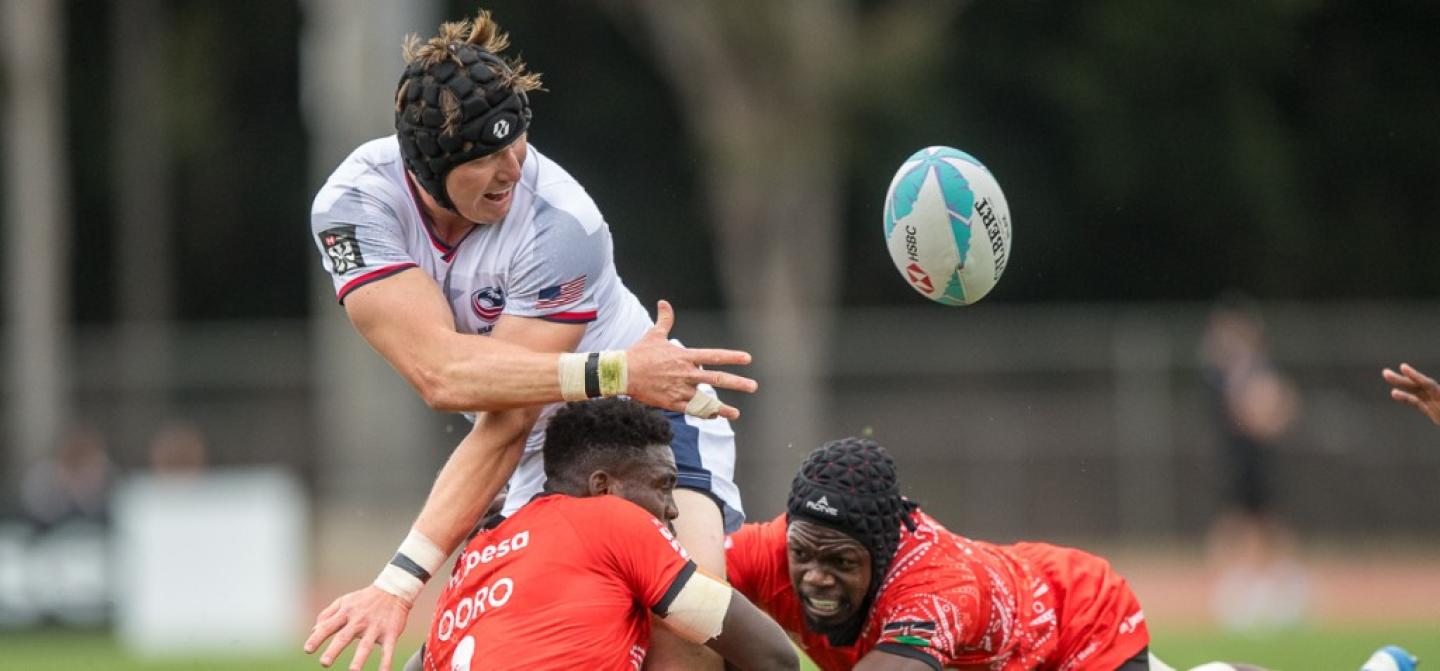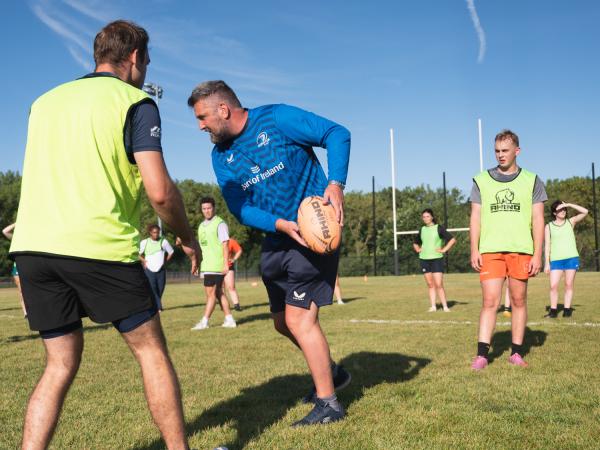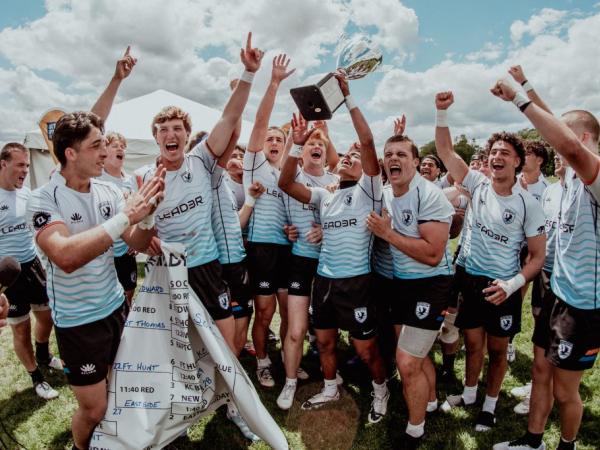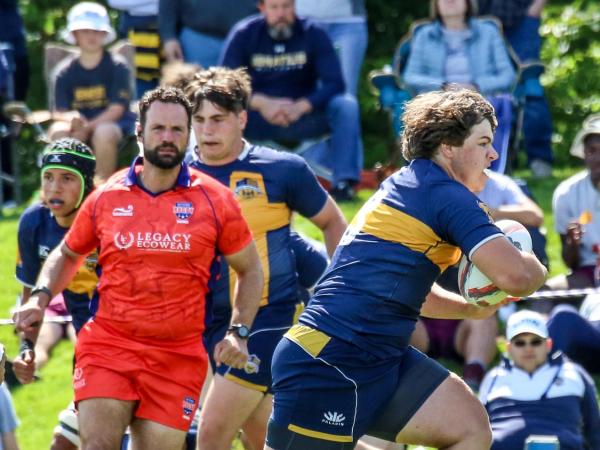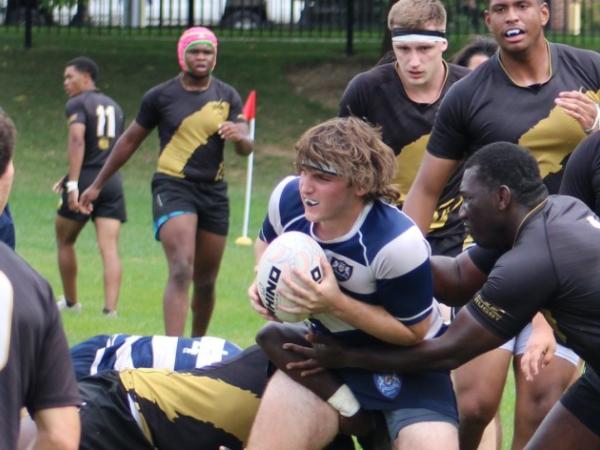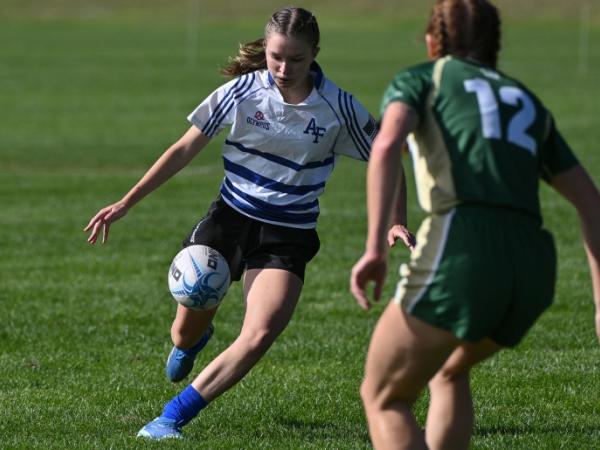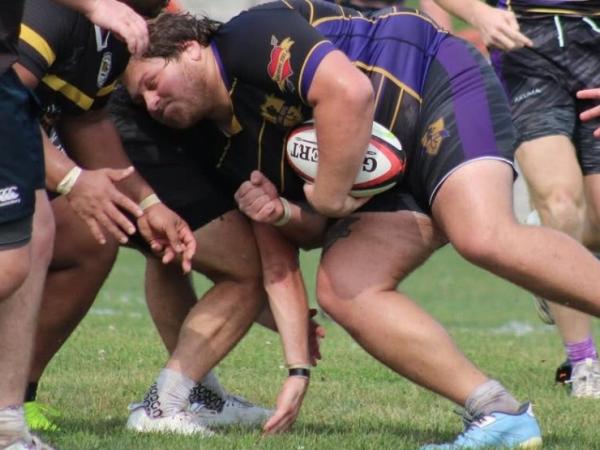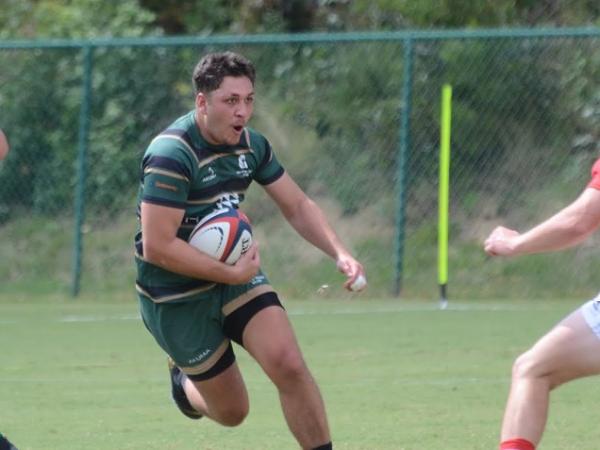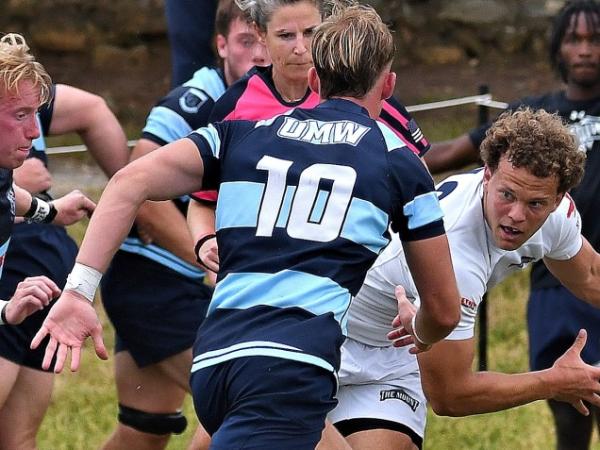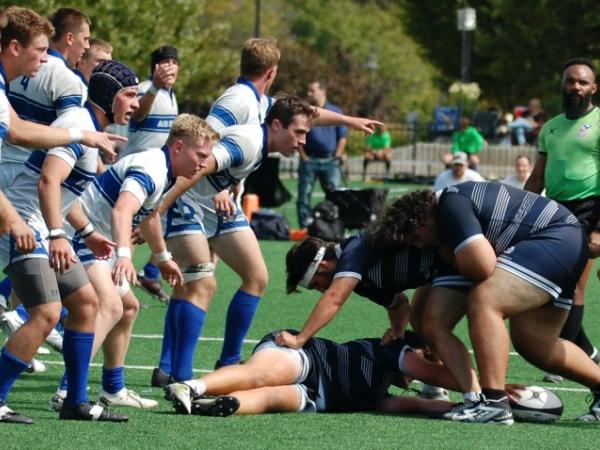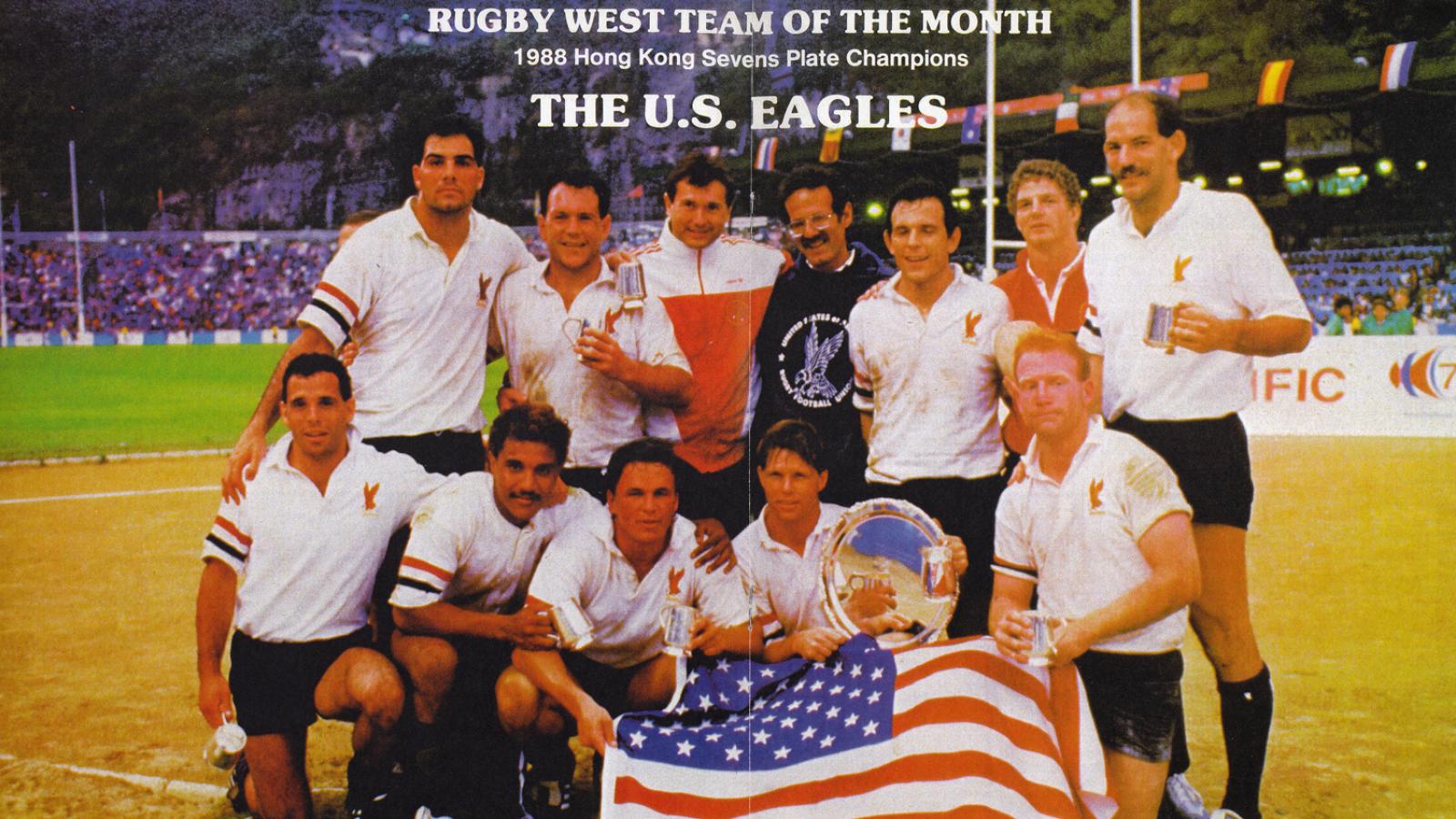Zack Test had a unique opportunity to see some of the younger USA 7s players in action before he actually took over the Men's 7s Head Coach job.
Tasked as he was to coach the women's team, Test opted to leave the men's squad alone for the first week. Ben Pinkelman and Colton Cariaga were coaching the team and they knew what players they had.
Coach Pinkelman Reflects on France Trip for USA Falcons Men
Falcons Women Raised the Bar, Says Test
The idea was to see how the players and the team responded to the initial game plan.
Taking a Back Seat
"So Week One I kind of left Colton and Pinky alone, because I wanted to really observe how everything was run, how the players recover, how they do their prep before games, how they handle warmups—you know, kind of the whole thing around the tournament," Test explained to GRR. I wanted to see how they did things right, because I don't want to go on there and fix things that don't necessarily need to be fixed or refined. So I left them alone."
With the Men's Falcons and Women's Falcons sharing a tent at the EASST 7s, Test had a chance to observe how the players went about their business, how they spoke to each other, and how they approached being a professional athlete.
"It was really good to get a real live look at the next crop of good American 7s players, and it was really good to see who stepped up the plate in pressure moments; who stepped up against really opposition," Test said. "You know that players raise their hand and you know they deserve to be here, and so it was. With the boys, they grew throughout the two weeks. It was really good to see their growth. And probably the most special thing was is one of my goals going into that tour was was making it one program and not just the men's and women's sevens separate."
As a result they held a joint jersey ceremony. Games Night was a combined game Night for the men and the women.
"We ate dinner together; we kind of did everything together," explained Test. "It's a united house, but united even more."
That was, perhaps, the main change Test pushed for early-on. But then when the second week rolled around, the former USA 7s star had some suggested to put forth.
What that required of him was to coach the women, get them off the field, debrief on the game, and often then sprint to the fields to see the men play.
"The second week is when I sat down with Colton and Pinky and I said, 'OK, here's what needs to be changed here. Here's what needs to be changed here. Here's what needs to be changed here. It wasn't huge things, but it was just little micro refinements here and there of how we can change a process, how we can change a system, how we can do this more effectively. Make it 1%, 2% better. And I think we saw a big jump from their performance from Week One to Week Two, where they were really humming."
"We'd go over their focus points. Are they hitting this? Are they communicating the right way? Are they following the system that I wanted to play? And they did. And I think you continue to see that they got better and better and better, and then that final ... I mean, it was a bounce of the ball kind of in that second half versus New Zealand, and they really pushed that team."
It was 14-12 for the Falcons late in the final against New Zealand in the second week before a few errors crept in to help the Cavaliers to a victory. Those two teams played against each other three times, with New Zealand winning 41-7 on Week One, and on Week Two the scores were 27-19 and 29-14.
"I think the game that really stood out for me against the boys was when they played against Pacific Toa," said Test. "They had been in the final the weekend before, and were a really big physical team and a lot of X factor. And the boys just showed up. in such an incredible defensive effort. This is something that you know I spoke with Pinky and Colton about, which is ... if we can take anything away from this. We know that all those boys can attack, but how well can they defend as a collective? Because that's really where the rubber hits the road. If you've got a collective seven that can kind of bend, don't break, and then be smart with their opportunities at the breakdown and not just go after everything—now you've got front-foot ball."
Looking at film later, Test said he saw good defensive decisions by the team—key being not exerting major pressure when it's too risky, and not always going for the jackle when it's not on.
"We knew with the firepower that they had on attack that they were going to get their opportunities to score," said Test. "So it was abut how well could they defend?"





